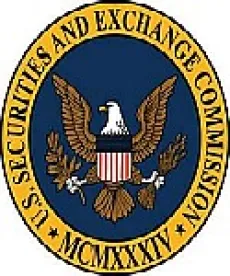On June 16, 2014, the Securities and Exchange Commission (SEC) issued an order against Paradigm Capital Management, Inc. (Paradigm), a registered investment adviser, and its principal for engaging in principal trades without effective client disclosure and consent, and for retaliating against an employee who reported such prohibited trading to the SEC[1] The SEC stated that this was the first time that it has brought an enforcement action for violations of the anti-retaliation provisions under Section 21F of the Securities Exchange Act of 1934 (Exchange Act).
Whistleblower Anti-Retaliation Rules
Section 21F of the Exchange Act, added as part of the Dodd-Frank Wall Street Reform and Consumer Protection Act, provides that the SEC shall reward whistleblowers who voluntarily provide information on possible violations of federal securities laws that leads to successful enforcement actions. To encourage whistleblowers to come forward without fear of retaliation, Section 21F(h) prohibits an employer from terminating, demoting, suspending, threatening, harassing or otherwise discriminating against an employee for reporting potential violations to the SEC and/or assisting in any resulting enforcement action.
In May 2011, the SEC adopted a set of rules to implement Section 21F, including Rule 21F-2, which specifies the conditions for receiving whistleblower rewards and anti-retaliation protection and gives the SEC the authority to bring enforcement actions against violations of Section 21F.[2] Under Rule 21F-2(b), a person is entitled to anti-retaliation protection as a whistleblower if, among other things, such person possesses a reasonable belief that the information such person provided relates to a possible securities law violation. Notably, a person is entitled to anti-retaliation protection as a whistleblower even if such person ultimately is not entitled to a reward.
The SEC Order
The SEC order alleged that Paradigm violated Section 21F(h) by engaging in a series of retaliatory actions against a head trader who had reported improper principal trades to the SEC. According to the order, from 2009 through 2011, Paradigm effected multiple principal trades between a hedge fund advised by Paradigm and an affiliated broker-dealer controlled and owned by Paradigm's principal. Although Paradigm had established a two-member conflicts committee to review and approve principal transactions on behalf of the hedge fund, the conflicts committee was itself conflicted, as one of its members was also the chief financial officer of the affiliated broker-dealer. Moreover, Paradigm failed to disclose this conflict when describing its procedures for obtaining client consent to principal trades in its Form ADV. As a result, Paradigm violated Sections 206(3) and 207 of the Investment Advisers Act of 1940 (Advisers Act) for engaging in principal trades without effective client disclosure and consent and for omitting to disclose a material fact in its filings with the SEC.
In May 2012, Paradigm's head trader made a voluntary submission to the SEC regarding Paradigm's prohibited principal trades. When the head trader later informed Paradigm that he had reported the trades to the SEC, Paradigm immediately removed him from the trading desk and stripped him of his day-to-day trading and supervisory responsibilities. In addition, Paradigm tasked the head trader with preparing a report on the alleged trading violations and instructed the head trader to work offsite. Despite the head trader's repeated requests, Paradigm refused to allow the head trader to resume his regular trading and supervisory role, ultimately resulting in the head trader's resignation.
The SEC found that Paradigm had no legitimate reason for changing the head trader's functions and stripping him of his supervisory responsibilities. The SEC concluded that Paradigm had marginalized the head trader in retaliation for reporting the principal trades to the SEC and that Paradigm had violated Section 21F(h). Without admitting or denying any wrongdoing, Paradigm and its principal agreed to pay disgorgement of $1.7 million, prejudgment interest of $181,771 and a civil penalty of $300,000. Paradigm and its principal also agreed to cease and desist from committing or causing further violations of Section 21F(h) of the Exchange Act and Sections 206 and 207 of the Advisers Act, and to hire an independent compliance consultant to review its trading policies.
Implications
The enforcement action against Paradigm signals the SEC's determination to exercise its new authority to bring anti-retaliation enforcement actions under Rule 21F-2(b). As the Chief of the SEC's Office of the Whistleblower stated in the press release accompanying the SEC order, "[the SEC] will continue to exercise [its] anti-retaliation authority in these and other types of situations where a whistleblower is wrongfully targeted for doing the right thing and reporting a possible securities law violation."[3] Investment advisers should be careful when terminating, demoting or otherwise changing the scope or terms of employment of an employee who has acted as a whistleblower, even if the changes are for unrelated reasons, and should be ready to provide a well-documented response in the event that the changes are brought into question.
[1] The SEC's order can be found here.
[2] The whistleblower rules became effective on August 12, 2011. A copy of the SEC's adopting release can be found here.
[3] A copy of the press release can be found here.






 />i
/>i

